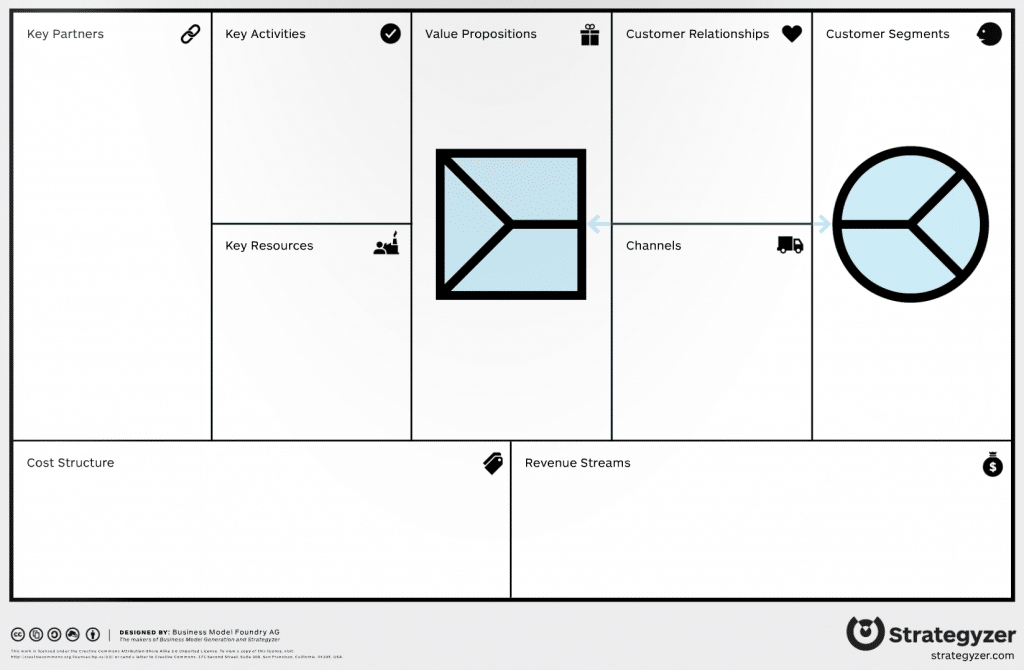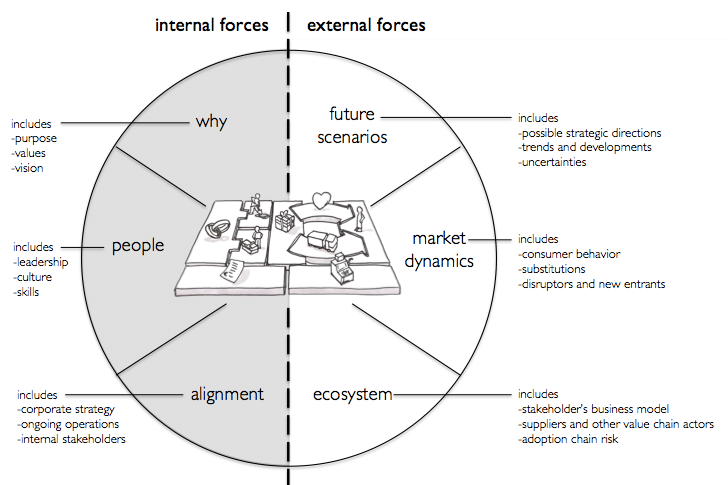Directe link:

Deel deze pagina
Innovation lies beyond the Business Model Canvas (BMC)
Innovation lies beyond the Business Model Canvas (BMC)
Two-thirds of all companies say new business models are their top priority, according to the 2015 issue of Strategy Trends Research by Berenschot. On the one hand that’s great news. In recent years, smart new business models have indeed disrupted quite a few industries, although the likes of Facebook, AirBnB and Uber are mentioned maybe a little bit too often.
Disruption awaits
But even still, the opportunities and disruptions from internet-based frictionless business models and exponentially accelerating technological possibilities are forcing huge changes upon almost every single branche and organization.
Plain old hard
So why wait? Well, most larger or older organizations have no clear idea how to craft such a new business model. And no wonder: re-inventing yourself is just plain old hard. Very hard! It is clear to everyone in such a business that designing a new ‘winner’ requires much more than ‘a great idea!’ plus a pile of sticky notes, a Business Model Canvas on the wall and a couple of wacky creative sessions.

Sure, these all help but it’s not enough, no matter how hard business model consultants from the hyped Business Model Generation will try to convince you otherwise.
Strengthening the idea
It actually requires múch more. There are at least six important areas of inspiration, and sweat, to look at before starting with the canvas. If used too early, the BMC will actually work against you and kill insights and creativity because it forces you to think ‘inside the canvas’. You need to look at the canvas through a much wider lens and introduce the bigger issues in which your innovation and new business model should be build and should land, such as your company’s purpose and values, its culture and leadership, market dynamics, possible future scenarios and the ecosystem your business (model) is part of.

Creative Commons License – BMC: Business Model Generation
These are the six areas of inspiration and strengething and some questions, divided into internal and external forces:
Internal forces questions
Why? – how does your innovation support the purpose and mission of your organization?
People – what is your team strength and your leadership style and company culture?
Alignment – how does your innovative idea align with the rest of the organization and the unwritten rules of engagement?
External forces questions
Future – how does your innovation benefit from the trends ánd uncertainties of this world?
Market – what are the potential market responses upon your arrival, both supply and demand?
Ecosystem – what is your organizations’ ecosystem and how will they benefit from and respond to your innovation?
Fare-well
So may you have an inspiring innovation journey. And may the world be your canvas.
